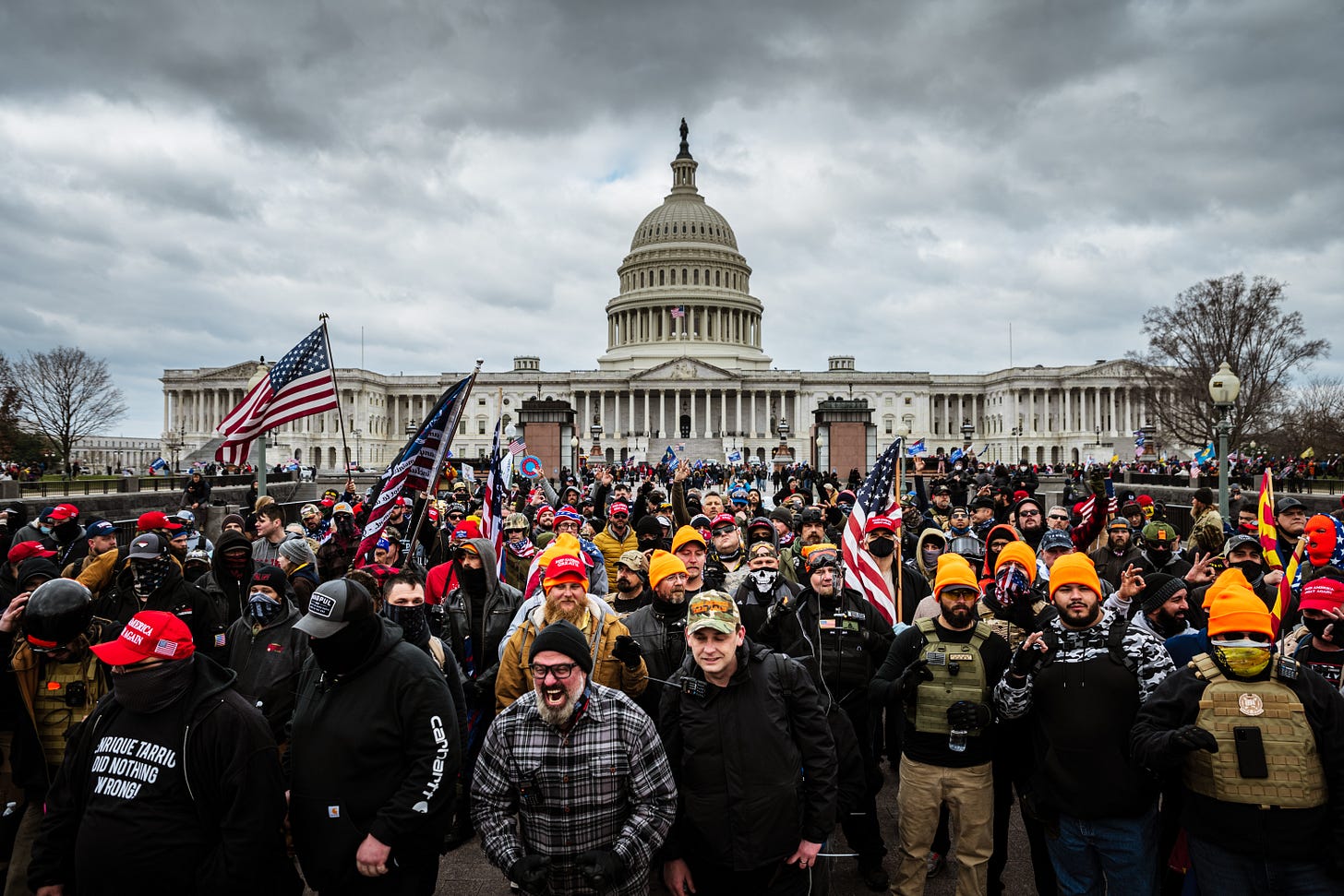With January 6th and Trump, the Truth Has Always Been Bad Enough
you don't have to call a yahoo riot an organized and effective insurrection to recognize its danger
Today is January 6th and I feel a certain tedium and impatience about marking the anniversary of the Capitol Hill attack four years later. There seems to be a growing consensus that it, along with all of Trump’s other menaces to constitutional rule, is not worth taking seriously. The line on January 6th is that even if it was a coup or insurrection attempt, it was a farce and a failure. But this is wrong. In retrospect, it was a great political success for Trump.
I’m afraid this doesn’t make much sense. If January 6th was a coup or insurrection attempt, then whether it was a great political success for Donald Trump is totally irrelevant; it’s a non sequitur to say that a coup or insurrection attempt was successful because of vague political value, as the entire point of a coup or insurrection attempt is to take actual material political power. A coup can only be a great success if it actually results in a transfer of power. And that did not occur, on January 6th; as badly as our hysterical liberal media wanted it to be the case, the operational integrity of the United States government was never threatened. You can’t have a coup without the support of the military and Trump plainly did not have the support of the military. It wasn’t the Joint Chiefs of Staff talking about hanging Mike Pence, it was a bunch of idiot yahoos who had staged a directionless riot - most of whom appeared to have no idea that they were supposedly trying to overthrow the federal government. Some large number of them showed up to a big stupid rally, a riot broke out, and they did what rioters do. That certainly is disturbing and it certainly is worth taking seriously, and the first priority when taking a crisis seriously is to call it by its right names.
I suspect that what motivates analysis like Ganz’s - and he is far from alone in this relentless threat inflation - is the endless wheel of resentment that does so much to direct this industry. Since the beginning of the Trump for President era, there have been progressive types who seem intent on misrepresenting which exact kind of threat Trump represents. There have always been people eager to call him an “actual dictator” or similar. But of course actual dictators do not (for example) see their self-defined signature legislative effort fail to pass because their own party rejects it. Whatever he wanted to do, and however much he deliberately sewed doubts about the results, Trump actually did relinquish power to the incoming Biden administration; he did not, in fact, suspend elections or similar. Instead, he’s something other than a dictator, something bad enough: an old fashioned popular demagogue, using fear and nativist resentment to generate sufficient popularity to rule as a legitimate and immensely-destructive president. But because there are people like me who react negatively to liberal hysterics about this event, there’s also a market opportunity to play to those very hysterics. “Why aren’t you as upset as I am?” has been a lucrative genre for a decade or so.
Ganz has always struck me as a writer who’s extremely calculated in how he’s built his persona and career, which includes tailoring his dyspeptic Twitter feed to just the communally-approved level of rudeness and embracing the book media’s pinched ideas about the correct focal length for doing political analysis through history. (I liked his book, more or less, when it was doing something other than courting the favor of the kind of people who read the NYRB.) But of course his attitude is just one symptom of this broader contemporary demand that everyone feel the way panicky liberals feel. To repeat myself, the paradigmatic liberal complaint in 2016 was this is not normal, the constant fixation on some universal definition of civic propriety and what it should and should not allow and a mutual sense that it was somehow being violated. The lament of the early Trump years was not that democracy had yielded destructive results, as it sometimes/often/usually does, but that the delicate sense of order in the universe held by front-of-class kids had been unnaturally broken. Oh well.




